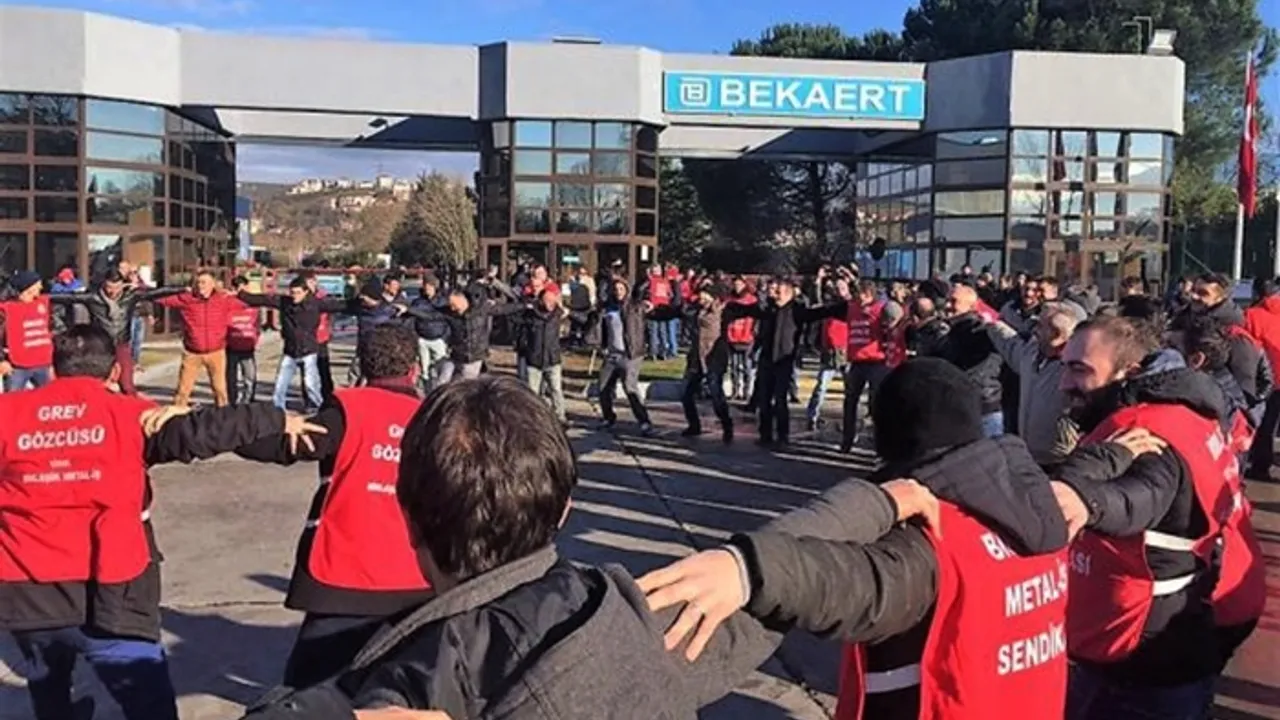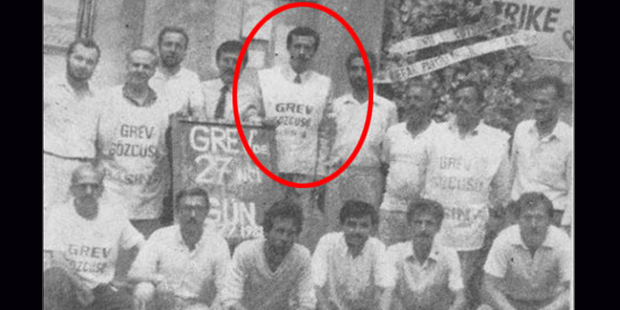Levent Kenez/Stockholm
Turkish President Recep Tayyip Erdoğan again prohibited workers from going on strike for reasons of “national security” with a decision published in the Official Gazette on Tuesday, making it the 20th strike that his government has banned since 2003.
Erdoğan announced that the strike called by the United Metal-İş Union at the European multinational Schneider Electric Company in the Çayırova district of Kocaeli province was postponed for 60 days, since it was seen as posing a threat to national security.
The workers and the company could not come to an agreement in their collective bargaining negotiations, and the union decided to call a strike.
Political observers criticize the fact that the president decides to allow or prohibit strikes on the local level, claiming that this is an indication of one-man rule. According to the Turkish constitution, the right to strike is protected, but since 1963 the state has had the right to ban or postpone walkouts. Without doubt the government that has banned the most strikes so far has been run by Erdoğan. A total of 20 decisions to go on strike that involved 250,000 workers were vetoed by the government.
However, Erdoğan’s strike postponement decisions have not been heeded by workers for a while now. With the 2023 elections fast approaching, the police will not take any action against striking workers in order to avoid tarnishing Erdoğan’s image, unlike in previous years.

So Schneider employees went on strike as announced on Tuesday. On December 13, 2022 the United Metal-İş Union made a decision for the workers at the Belgium Bekaert steel company in Kocaeli to go on strike, and as expected the strike was not allowed by Erdoğan on the grounds of national security. Despite this, the union went ahead with the walkout. The workers ended the strike by reaching an agreement with the company on December 31, the 18th day of the strike. Schneider employees are probably also following a similar pattern.
In 2018, at a meeting of the provincial chairs of his party, Erdoğan said, “With us, the events called ‘strikes’ have disappeared. No strikes now. ”
In another meeting addressing foreign investors on July 12, 2017, Erdoğan stated that a state of emergency declared in 2016 had also been to the benefit of employers and added, “When we took office, all factories were under the threat of a strike. Remember those days? But when there is the threat of a strike, we intervene immediately by taking advantage of the state of emergency.”

However, it looks as if Erdoğan’s approach to strikes has changed over time. Serving at the time as the Istanbul chair of the now-closed Welfare Party, Erdoğan in 1988 supported a strike by printing press workers and wore a smock with words of that support printed on it. A photograph taken during the strike was used in party publications as proof of Erdoğan’s favorable view of the workers.
Visiting the workers on the 28th day of the strike, Erdoğan also signed the workers’ memorial book. “In our country, especially after 1980, the governments are indifferent to workers’ rights and human dignity. As a requirement of our religion, we consider it a duty to be with them,” he wrote.
The Erdoğan government generally does not allow strikes in workplaces owned by foreign entities. The reason behind this includes the message that the government is on the side of the foreign owners rather than the workers. It is no secret that the deteriorating Turkish economy requires a large amount of foreign capital.
However, Erdoğan last month decided to increase the minimum wage by 55 percent in order not to lose his popularity among workers before the presidential and parliamentary elections, which he announced would be held in May. Undoubtedly, balancing a crisis in the cost of living caused by high inflation lies behind this large increase. The opposition claims that one of the reasons for Erdoğan to hold elections in May instead of June as originally scheduled is to exploit the temporary financial well-being that workers and civil servants will experience with the sizable salary and wage increases.












